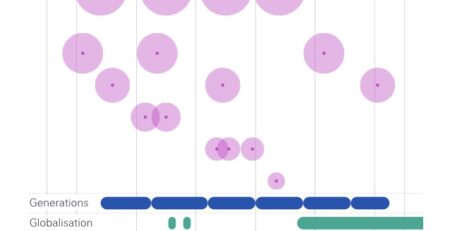Demographic Obstacles to European Growth
By: Thomas F. Cooley, Espen Henriksen, Charlie Nusbaum
Since the early 1990’s the growth rates of the four largest European economies—France, Germany, Italy, and the United Kingdom—have slowed. This persistent slowdown suggests a low-frequency structural change is at work. A combination of longer individual life expectancies and declining fertility have led to gradually ageing populations. Demographic change affects economic growth directly through households savings and labor supply decisions and also growth indirectly through the pension systems and the need to fund them. Tax increases to balance budgets will impose additional distortions to individual factor-supply choices. We quantify the growth effects from aging and from the financing of public pensions, and we estimate the welfare gains from pension reforms.
Source: SSRN










